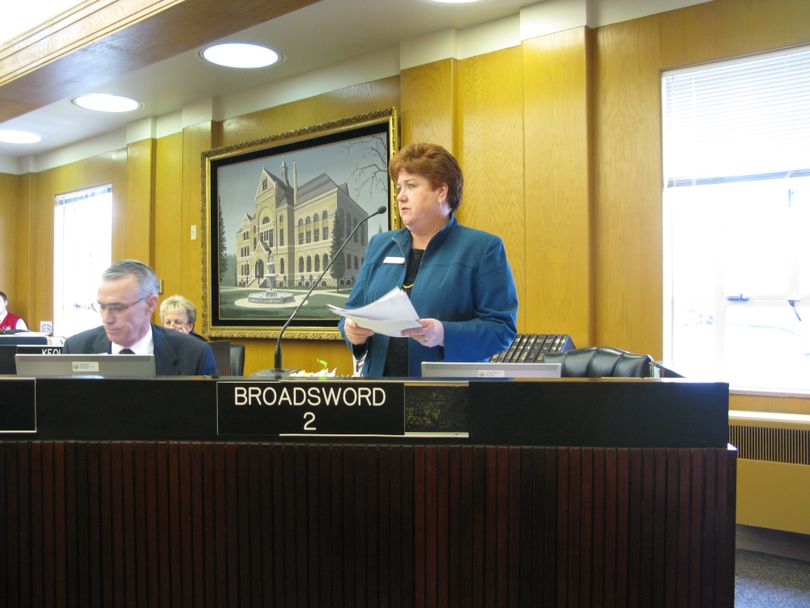Rejection of septic rules clears Senate, 27-7

It was quite a debate for a resolution rejecting an agency rule, but the Senate has voted 27-7 to reject a Department of Environmental Quality rule, approved 6-1 by that agency's board, to stiffen requirements for new septic systems to protect water quality. You can read my full story here at spokesman.com. "None of us wish to see our lakes and waters degraded," Sen. Joyce Broadsword, R-Sagle, told the Senate. "That's not the point here. .. We're sending a message to the agency." She said the DEQ didn't adequately prove to lawmakers that septic systems with more water flowing into them have a greater risk of failure. "It's debatable," she said. "By and large, there was no scientific proof that the failures of sewage systems in Idaho were in any way tied to increased flows."
Opponents disagreed. Idaho's health districts and the DEQ conducted a statewide wastewater generation study that included 2,800 homes and presented the results to the DEQ and the Legislature. They showed that one in seven are exceeding design standards. "Responsibility for the water quality of the state rests on our shoulders, and I would hope that we would always do our best to maintain that," Sen. Nicole LeFavour, D-Boise, told the Senate. But several North Idaho senators spoke out in favor of rejecting the rule. Sen. John Goedde, R-Coeur d'Alene, said health officials should educate people about how to better maintain their septic systems. "That would be a proactive thing they could do," he said. Sen. Jim Hammond, R-Post Falls, said, "Right now there is not an agreement on the problem or the resolution to the problem." He said all involved should get together and agree on solutions. "No one would argue with protecting our water, especially those of us who life up near those beautiful waters."
Sen. Kate Kelly, D-Boise, said the DEQ conducted an extensive and inclusive negotiated rule-making process before bringing the new septic rules to its board for approval. "This was a very deliberative, inclusive process," she said. "When these systems start failing, it's going to affect our water quality and it's going to affect our tourism. It's going to affect all sorts of things." Broadsword, the measure's sponsor, said, "I would agree that this was a negotiated rule-making, but there were folks that were left out of the negotiations." During the roll call, Sen. Chuck Coiner, R-Twin Falls, rose to explain his vote, and said, "Everybody had an opportunity to be there - some chose not to, and that bothers me." Nevertheless, he voted in favor. The seven "no" votes included six Democratic senators plus Sen. Gary Schroeder, R-Moscow.
The septic rules, first proposed by the Panhandle Health District in North Idaho, led to something of a scandal when John Eaton, a lobbyist for the Realtors, withdrew a campaign contribution to Joan Cloonan, a DEQ board member and legislative candidate, after she voted for the rule - which his group opposed. State officials said no laws had been violated. Broadsword told Eye on Boise, "The flap over John Eaton didn't even surface up north." She said, "I didn't really hear from the Realtors in my area, I heard from contractors, I heard from homeowners, and they were concerned about having to put in larger systems."
